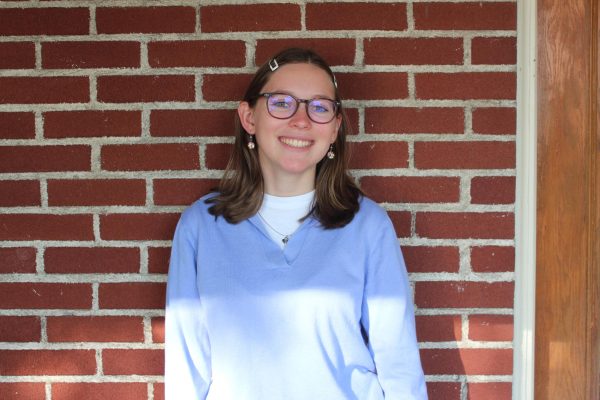Food insecurity is an ongoing issue at Bucknell, according to the “Food Story: Improving the Landscape for Student Food Security at Bucknell” project final report. The project was conducted by student research assistants as well as the professors and students of MORS 250: Poverty and Organizations and RESC 221: Poverty, Development and Social Change in the spring and fall of this year. Through participatory qualitative research, the project aimed to “document students’ own perspectives on food security and insecurity” and “reopen the conversation to improve the landscape for food security at Bucknell.”
This report understood food insecurity as “having reliable access to nutritious, affordable, satisfying and readily attainable food.” Authors Melissa Intindola: Management and Organizations professor, Robyn Eversole: Professor of Practice in Social Entrepreneurship and student Paloma Flores Montero ’25 argue that food security “is vital for student equity and for students’ physical, social, cultural and psychological well being.” Additionally, they argue that solving it “requires moving beyond simply addressing basic needs, to creating an overall culture of food security on campus.” Food security is not the responsibility of a particular body on campus but is, instead, a collective institutional responsibility.
In the responses collected, students gave insight into systemic issues both through and beyond their individual experiences. In addition to that, Intindola, Eversole and Flores Montero found that their low participation rate highlighted how discussion around food insecurity is stigmatized at Bucknell. “Many students associate food insecurity with poverty, leading to feelings of shame and embarrassment, and thus a hesitancy in sharing their stories,” the report stated. Additionally, they attribute some limitations to the narrow perception that food insecurity only means a lack of sufficient food, which can discourage students from seeking help when their access to food is not reliable, affordable, nutritious or culturally and allergen appropriate.
From their findings, the “Food Story” project raises three suggestions for mitigating food insecurity at Bucknell: increasing the diversity, quality and availability of food options on campus; connecting students with financial support for food; and connecting students with community food resources. First, their student stories highlighted that there is a limited range of quality nutritious food available on campus; students in particular noted that at certain times, like evenings, weekends and extended breaks, there are few food options available. Students also reported that they try to supplement their gaps in meals but often lack the cooking utensils, ingredients or kitchen space necessary. As a solution, the report proposes “providing fresh fruit and vegetables and basic food ingredients on campus in a stigma-free setting, such as in residence halls, food stations or a campus co-op shop—whether free, subsidized or even at normal (not inflated) market prices.”
In terms of financial support, student submissions also pointed to the cost of food as a barrier to food security on campus. Student feedback mirrored a point made in the 2021 Food and Nutrition Task Force report, that because Bucknell cannot meet 100 percent of demonstrated financial need, students who depend on financial aid “are often expected to take loans to cover the comprehensive cost of attendance, which includes the price of the Anytime Access meal plan. This is problematic in that it takes an already expensive way of feeding oneself and makes it more expensive by adding the cost of borrowing.” In addition to suggesting that Bucknell offer “more transparent pricing to enable students and families to make informed decisions” about financial aid, there was also a recommendation to have a dedicated staff member to assist students with processes like applying for Supplemental Nutrition Assistance Program (SNAP) benefits and providing information about off-campus food distribution.
Students also recommended improving transportation to a wider range of off-campus fresh food and grocery store options, such as Aldi and the Lewisburg Farmers Market, “to make it easier for students to acquire essential items at reasonable price.” The report also proposed a model seen at other campuses where the institution purchases local fresh produce and basic grocery items in bulk to make them immediately available on campus.
Throughout the report, Intindola, Eversole and Flores Montero point to patterns between their findings and a survey done in Fall 2020 by the Food and Nutrition Task Force, which has since been disbanded. The survey was taken by 964 students and found that over a third of students regularly skipped or skimped on meals and over 60 percent of students indicated that they ‘sometimes’ or ‘often’ worried whether they could have all the meals they need. The follow-up 2021 Food and Nutrition Task Force found that food insecurity is disproportionately an issue affecting marginalized students, including first-generation students and Pell Grant recipients. To support the institutional approach to food insecurity that they advocate for, Intindola, Eversole and Flores Montero believe this work could include “reinstating the Food and Nutrition Task Force as a permanent cross-institutional body with a mandate to implement and evaluate initiatives to improve Bucknell students’ food security.”
To gather this information, in late Spring and early Fall 2024, students were invited to submit their stories about food and food insecurity through an online storytelling platform (which is still open), which was designed specifically for this study to be both flexible and confidential. These stories were then shared in an exhibition on food insecurity in the Holmes Hall Exhibit Space in October, in collaboration with the Department of Art & Art History. In addition to the selected stories, the exhibit also included baseline information and data from previous reports on campus food insecurity, as well as a Participatory Wall where students were invited to write recommendations for improving food security at Bucknell, which informed some of the suggestions raised in the report.






















